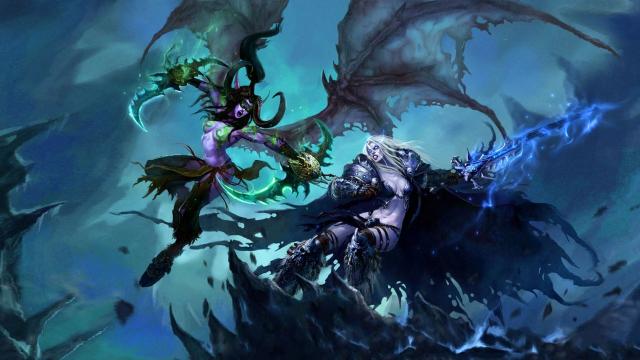
An Addiction to Video Games? - Article
by VGChartz Staff , posted on 12 March 2014 / 4,165 Views“Playing video games never hurt anyone.” If you’ve ever gotten involved with any kind of debate around video games — particularly those involving the practices of the ESRB, PEGI, or those who link playing video games with violent real-life behavior, then you’ve heard someone say this at some point. Is it true though? I still remember hearing two news stories — one in 2005 and another in 2012 — in which video games really did hurt someone, in a manner of speaking. More accurately, video game addiction killed two men.

The DSM, the Diagnostic and Statistical Manual of Mental Disorders, is the book through which all mental, social, psychological, and similar disorders are classified and defined. The latest version of the DSM, the DSM-5, classifies “Internet Gaming Disorder” as a section 3 condition, which basically means that it needs to be studied more in order for it to be classified as a genuine disorder. For those who have suffered addiction to video games, however, the condition is far from hypothetical.
So what exactly is video game addiction? According to the APA, a group of psychiatric professionals who are lobbying for more studies into “Internet Gaming Disorder,” playing video games turns into addiction (particularly addiction to games played online, as the name suggests) when the playing becomes detrimental to other facets of the player’s life. If a player neglects his or her family, job, or own well-being, then that person is no longer just a player; he or she is an addict. In the cases of those two news stories mentioned above, the addiction became so dire that it led to death. The man who died in South Korea in 2005 reportedly died after a 50-hour-long marathon gaming session, and the Taiwanese man who died in 2012 had his hands on his keyboard and mouse when he died; he couldn’t stop playing even for a fatal heart attack.

Unfortunately, many people do not treat video game addiction as a real thing. It is often overlooked or ignored in part because it has not yet been taken up by the DSM, but also because of the nature of the stimulus. Society seems quick to accept that addiction is real when an external chemical (particularly synthetic ones) are introduced into the human biological system, yet an intangible substance is often dismissed as impotent. "Just turn your computer off" is about as much help as some people think gaming addicts need. The sad truth is that any kind of addiction functions much like any other; the real addiction happens not directly from the stimulus, but from how the stimulus affects the brain. Can video game playing cause the brain to release the same addictive rush of dopamine and endorphins that one would see with a substance like heroin? Of course it can.
Let’s take a look at one of the world’s most popular online games: World of Warcraft. A player begins quickly — leveling and completing myriad quests in a matter of minutes before moving on to the next task, the next discovery. Each gained level and each completed quest is accompanied with bright lights, new skills, new items, and in-game currency. Most players feel a little rush, just as one would with any other accomplishment — particularly one for which there is a definite, quantitative reward. As one plays more, these rewards begin to spread out further and further, making each new accomplishment feel all the more significant, releasing a bigger organic chemical rush than the previous. In my brief stint as a WoW player, it seemed fairly obvious to me that the game was designed to be addictive, and it’s fairly obvious that WoW is not the only game to be designed this way.

This is of course in no way meant to demonize games like World of Warcraft, merely to point out that a legitimate addiction to gaming is not an unreasonable possibility. Lots of things are designed purely for that feel-good rush, after all, and a vast majority of people play these games and use these things responsibly. Moreover, it is not the fault of the game or its makers if someone uses it irresponsibly. Gaming is a great hobby (and for some, a great profession!), but when harmless fun stops and addiction takes over, quick actions and sober attitudes are called for. Please game responsibly.
If you or someone you care about is struggling with addiction to online gaming, check out some of the resources available at On-Line Gaming Anonymous.






















 Essay Pro
Essay Pro